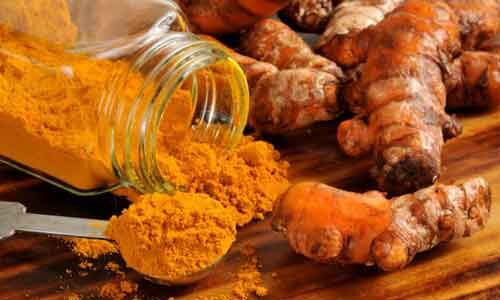- Home
- Medical news & Guidelines
- Anesthesiology
- Cardiology and CTVS
- Critical Care
- Dentistry
- Dermatology
- Diabetes and Endocrinology
- ENT
- Gastroenterology
- Medicine
- Nephrology
- Neurology
- Obstretics-Gynaecology
- Oncology
- Ophthalmology
- Orthopaedics
- Pediatrics-Neonatology
- Psychiatry
- Pulmonology
- Radiology
- Surgery
- Urology
- Laboratory Medicine
- Diet
- Nursing
- Paramedical
- Physiotherapy
- Health news
- Fact Check
- Bone Health Fact Check
- Brain Health Fact Check
- Cancer Related Fact Check
- Child Care Fact Check
- Dental and oral health fact check
- Diabetes and metabolic health fact check
- Diet and Nutrition Fact Check
- Eye and ENT Care Fact Check
- Fitness fact check
- Gut health fact check
- Heart health fact check
- Kidney health fact check
- Medical education fact check
- Men's health fact check
- Respiratory fact check
- Skin and hair care fact check
- Vaccine and Immunization fact check
- Women's health fact check
- AYUSH
- State News
- Andaman and Nicobar Islands
- Andhra Pradesh
- Arunachal Pradesh
- Assam
- Bihar
- Chandigarh
- Chattisgarh
- Dadra and Nagar Haveli
- Daman and Diu
- Delhi
- Goa
- Gujarat
- Haryana
- Himachal Pradesh
- Jammu & Kashmir
- Jharkhand
- Karnataka
- Kerala
- Ladakh
- Lakshadweep
- Madhya Pradesh
- Maharashtra
- Manipur
- Meghalaya
- Mizoram
- Nagaland
- Odisha
- Puducherry
- Punjab
- Rajasthan
- Sikkim
- Tamil Nadu
- Telangana
- Tripura
- Uttar Pradesh
- Uttrakhand
- West Bengal
- Medical Education
- Industry
Turmeric compound could have antiviral properties, finds study

Researchers at the Wuhan Institute of Bioengineering have found that Curcumin, a natural compound found in the spice turmeric may inhibit transmission of viruses and could help eliminate certain viruses in high doses.The study has been published in the Journal of General Virology.
The research showed that curcumin can prevent Transmissible gastroenteritis virus (TGEV) - an alpha-group coronavirus that infects pigs - from infecting cells. At higher doses, the compound was also found to kill virus particles.
Infection with TGEV causes a disease called transmissible gastroenteritis in piglets, which is characterised by diarrhoea, severe dehydration and death. TGEV is highly infectious and is invariably fatal in piglets younger than two weeks, thus posing a major threat to the global swine industry. There are currently no approved treatments for alpha-coronaviruses and although there is a vaccine for TGEV, it is not effective in preventing the spread of the virus.
To determine the potential antiviral properties of curcumin, the research team treated experimental cells with various concentrations of the compound, before attempting to infect them with TGEV. They found that higher concentrations of curcumin reduced the number of virus particles in the cell culture.
The research suggests that curcumin affects TGEV in a number of ways: by directly killing the virus before it is able to infect the cell, by integrating with the viral envelope to 'inactivate' the virus, and by altering the metabolism of cells to prevent viral entry. "Curcumin has a significant inhibitory effect on TGEV adsorption step and a certain direct inactivation effect, suggesting that curcumin has great potential in the prevention of TGEV infection," said Dr Lilan Xie, lead author of the study and researcher at the Wuhan Institute of Bioengineering.
Curcumin has been shown to inhibit the replication of some types of virus, including dengue virus, hepatitis B and Zika virus. The compound has also been found to have a number of significant biological effects, including antitumor, anti-inflammatory and antibacterial activities. Curcumin was chosen for this research due to having low side effects according to Dr Xie. They said: "There are great difficulties in the prevention and control of viral diseases, especially when there are no effective vaccines. Traditional Chinese medicine and its active ingredients, are ideal screening libraries for antiviral drugs because of their advantages, such as convenient acquisition and low side effects."
The researchers now hope to continue their research in vivo, using an animal model to assess whether the inhibiting properties of curcumin would be seen in a more complex system. "Further studies will be required, to evaluate the inhibitory effect in vivo and explore the potential mechanisms of curcumin against TGEV, which will lay a foundation for the comprehensive understanding of the antiviral mechanisms and application of curcumin" said Dr Xie.
For more details click on the link: http://dx.doi.org/10.1099/jgv.0.001466
Hina Zahid Joined Medical Dialogue in 2017 with a passion to work as a Reporter. She coordinates with various national and international journals and association and covers all the stories related to Medical guidelines, Medical Journals, rare medical surgeries as well as all the updates in the medical field. Email: editorial@medicaldialogues.in. Contact no. 011-43720751
Dr Kamal Kant Kohli-MBBS, DTCD- a chest specialist with more than 30 years of practice and a flair for writing clinical articles, Dr Kamal Kant Kohli joined Medical Dialogues as a Chief Editor of Medical News. Besides writing articles, as an editor, he proofreads and verifies all the medical content published on Medical Dialogues including those coming from journals, studies,medical conferences,guidelines etc. Email: drkohli@medicaldialogues.in. Contact no. 011-43720751


